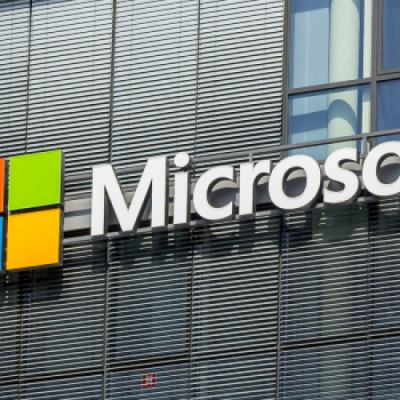Tackling Trendjacking: Twitter's Potential Decision to Curb Brands Exploiting Popular Conversations

Twitter may be on the verge of implementing a change to its Ad Policies, potentially limiting the scope for brands to capitalize on trending topics via replies to popular tweets. Stemming from a recent tweet by Twitter CTO Elon Musk, the proposed move is aimed at eliminating spammy replies that could disrupt the user experience. Here, we shed light on the implications of such a policy shift and the potential impact on Twitter marketing strategies going forward.
For years, trendjacking has been a popular tactic employed by marketers, allowing them to gain better exposure by linking their brand's content to trending discussions on Twitter. However, the practice has also given rise to a plethora of spammy replies, often unrelated to the original conversation and solely aimed at advertising a product or service. Musk's recent tweet suggests that brands engaging in "non-sequitur self-promotion" could be suspended, hinting at the possibility of a new regulation targeting this behavior.
While it remains unclear whether Twitter will indeed implement such a rule, the current ambiguity indicates that brands may still be able to engage with trending topics in a more contextually relevant manner. This approach would maintain the advantages of trendjacking without running afoul of the potential policy. It is crucial for marketers, however, to monitor whether Twitter's Ad Policies undergo an update and how any changes might affect their current strategies.
As an existing regulation, Twitter’s Platform Manipulation and Spam Policy may also play a vital role in tackling spammy replies. The policy prohibits the use of Twitter services "in a manner intended to artificially amplify information, or engage in behavior that manipulates or disrupts people’s experience." Although it currently does not identify trendjacking or spammy replies specifically, it may serve as a foundation for future policy updates designed to address these issues.
In conclusion, the possibility of Twitter cracking down on brands utilizing trendjacking tactics in their replies to trending tweets underscores the need for companies to adapt their marketing strategies. Focusing on contextually relevant engagement and keeping abreast of policy updates are essential to maintaining an effective presence on the platform. As Twitter continues to evolve, marketers must strike a balance between leveraging popular conversations and respecting the user experience to remain successful on the social media giant.
Latest Articles
-
![World of Warcraft: How to Start Playing in 2021]() Editor's Advice World of Warcraft: How to Start Playing in 2021
Editor's Advice World of Warcraft: How to Start Playing in 2021 - Nov-20-2021
-
![Master the Art of Zenny Farming in Street Fighter 6's World Tour Mode]() Editor's Advice Master the Art of Zenny Farming in Street Fighter 6's World Tour Mode
Editor's Advice Master the Art of Zenny Farming in Street Fighter 6's World Tour Mode - Jun-18-2023
-
![WhatsApp's New Move: Welcome to Screen Sharing]() Amazing News! WhatsApp's New Move: Welcome to Screen Sharing
Amazing News! WhatsApp's New Move: Welcome to Screen Sharing - Aug-10-2023
-
![The Sims 4 Update to Improve Industrial Loft Kit]() Amazing News! The Sims 4 Update to Improve Industrial Loft Kit
Amazing News! The Sims 4 Update to Improve Industrial Loft Kit - Nov-10-2021
-
![Magical Mixtures: An In-Depth Guide to Potions in The Witcher 3 - Recipe, Effects, and Ingredients]() Best For You Magical Mixtures: An In-Depth Guide to Potions in The Witcher 3 - Recipe, Effects, and Ingredients
Best For You Magical Mixtures: An In-Depth Guide to Potions in The Witcher 3 - Recipe, Effects, and Ingredients - May-04-2023
-
![75 Percent of Gamers Support Microsoft’s Acquisition of Xbox Activision Blizzard]() Amazing News! 75 Percent of Gamers Support Microsoft’s Acquisition of Xbox Activision Blizzard
Amazing News! 75 Percent of Gamers Support Microsoft’s Acquisition of Xbox Activision Blizzard - Dec-22-2022
Trending Games
-
![Crash Bandicoot Mobile logo]() Crash Bandicoot Mobile Action
Crash Bandicoot Mobile Action -
![Amazing Frog? logo]() Amazing Frog? Games
Amazing Frog? Games -
![FIFA Soccer logo]() FIFA Soccer Sports
FIFA Soccer Sports -
![Gang Beasts logo]() Gang Beasts Action Games
Gang Beasts Action Games -
![BeamNG.drive logo]() BeamNG.drive Simulation Games
BeamNG.drive Simulation Games -
![The Sims™ 4 logo]() The Sims™ 4 Simulation Games
The Sims™ 4 Simulation Games
Latest Reviews
-
![Sonic the Hedgehog™ Classic logo]() Sonic the Hedgehog™ Classic Action
Sonic the Hedgehog™ Classic Action -
![Pokemon Scarlet logo]() Pokemon Scarlet Role Playing
Pokemon Scarlet Role Playing -
![Gacha Cute logo]() Gacha Cute Action
Gacha Cute Action -
![Stumble Guys logo]() Stumble Guys Action
Stumble Guys Action -
![Farthest Frontier logo]() Farthest Frontier Strategy Games
Farthest Frontier Strategy Games -
![The Mortuary Assistant logo]() The Mortuary Assistant Indie Games
The Mortuary Assistant Indie Games


















